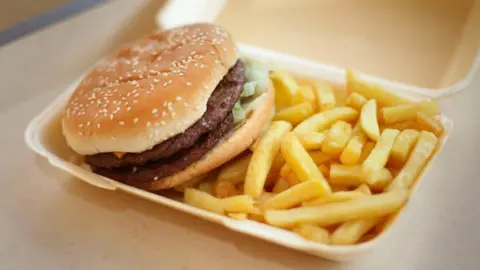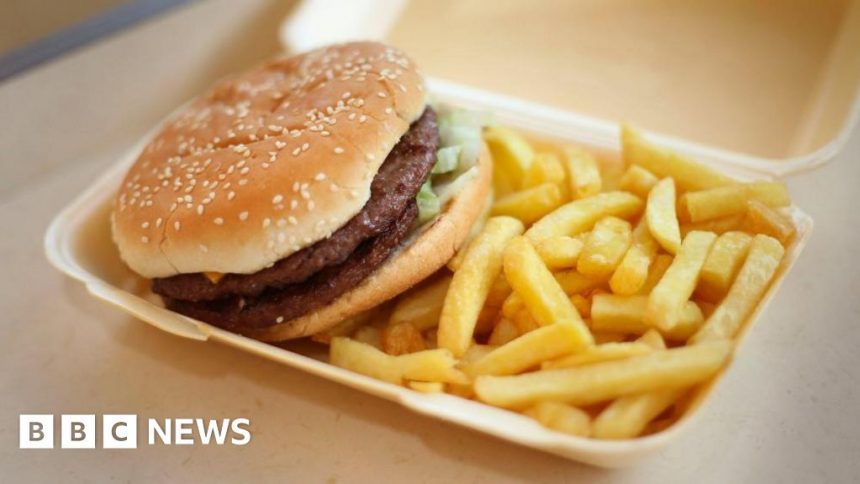Ban on junk food TV adverts before 9pm to come in next year
 PA Media
PA MediaA ban on junk food adverts being shown on TV before 21:00 will come into force on 1 October 2025, the government has confirmed.
Labour said the watershed on junk food advertising would be enforced alongside a total ban on paid-for online adverts.
The Conservatives had previously committed to the ban in 2021 when Boris Johnson was prime minister, but it was pushed back to give the industry more time to prepare.
Health Minister Andrew Gwynne said confirming the scope of restrictions and the date they would be implemented provided clarity for businesses.
Gwynne said the government wanted “to tackle the problem head on” and “without further delay”.
“These restrictions will help protect children from being exposed to advertising of less healthy food and drinks, which evidence shows influences their dietary preferences from a young age,” he said in his written statement to the Commons on Thursday.
The pre-watershed ban was a pledge in Labour’s manifesto during this year’s general election campaign.
The government has now published its response to a 2022 consultation on draft measures for the ban, confirming definitions for the products, businesses and services covered by the restrictions.
Gwynne said the government would also hold a four-week targeted consultation to then be able to clarify how restrictions would apply to Internet Protocol Television (IPTV), which delivers TV live over the internet.
It comes as Prime Minister Sir Keir Starmer promised significant reforms for the NHS following the publication of a report by surgeon and former Labour minister Lord Darzi.
Among Sir Keir’s plans is a transition to a digital NHS, moving more care from hospitals to communities and a focus on sickness prevention to alleviate pressure.
“One of these pressures is the childhood obesity crisis, setting up children for an unhealthy life and generating yet greater pressures on the NHS,” Gwynne said.
“More than one in five children in England are overweight or living with obesity by the time they start primary school, and this rises to more than one third by the time they leave.”







